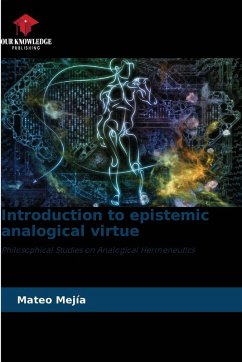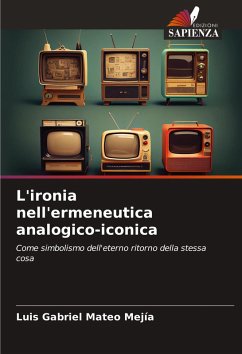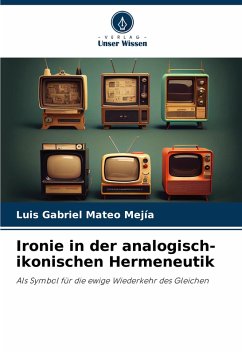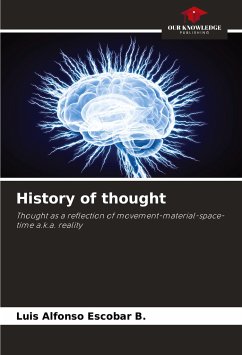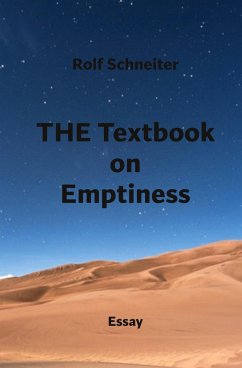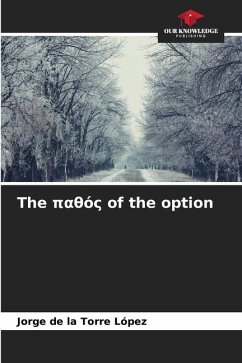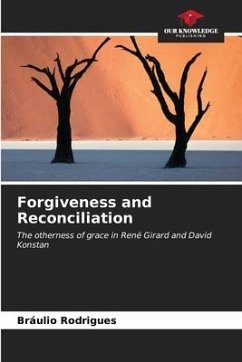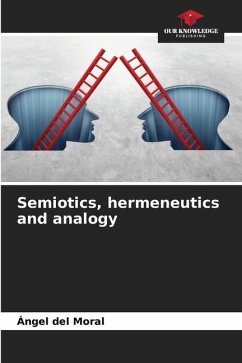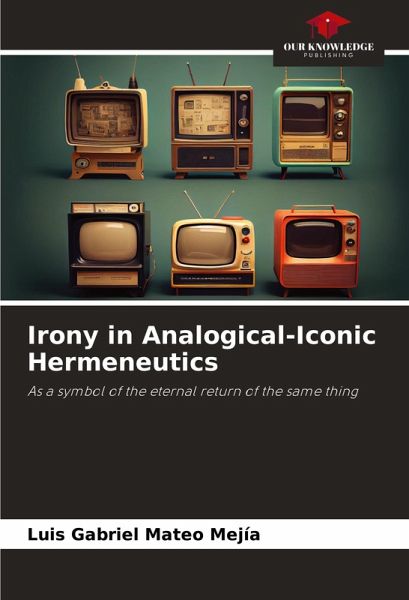
Irony in Analogical-Iconic Hermeneutics
As a symbol of the eternal return of the same thing
Versandkostenfrei!
Versandfertig in 6-10 Tagen
29,99 €
inkl. MwSt.

PAYBACK Punkte
15 °P sammeln!
The following essay intends to show and not only demonstrate the presence of the concept of analogy and iconicity in the philosophy of the new realism, subsequent to the post-historical thought, better said, post-modern. Giving the opening to the new generation of a nascent and growing philosophy. This new way of thinking intends to retake the concept of irony, so old in classical philosophy and so current in the paradox of human existence, has presented us with a new epistemological, ontological and anthropological turn, which leads to rethink the essence of understanding and comprehension. I...
The following essay intends to show and not only demonstrate the presence of the concept of analogy and iconicity in the philosophy of the new realism, subsequent to the post-historical thought, better said, post-modern. Giving the opening to the new generation of a nascent and growing philosophy. This new way of thinking intends to retake the concept of irony, so old in classical philosophy and so current in the paradox of human existence, has presented us with a new epistemological, ontological and anthropological turn, which leads to rethink the essence of understanding and comprehension. In this case, a more appropriate vision of dialectics, logic and semiotics, thus favoring its application to the opening of the true and authentic meaning of existence. This work encloses the reading in the key of analogical hermeneutics, emphasizing the paradox of existence and dialectics itself, that is to say, the analectic. Its context and frame, it is not superfluous to point out, is thehistory of philosophy in the West.





